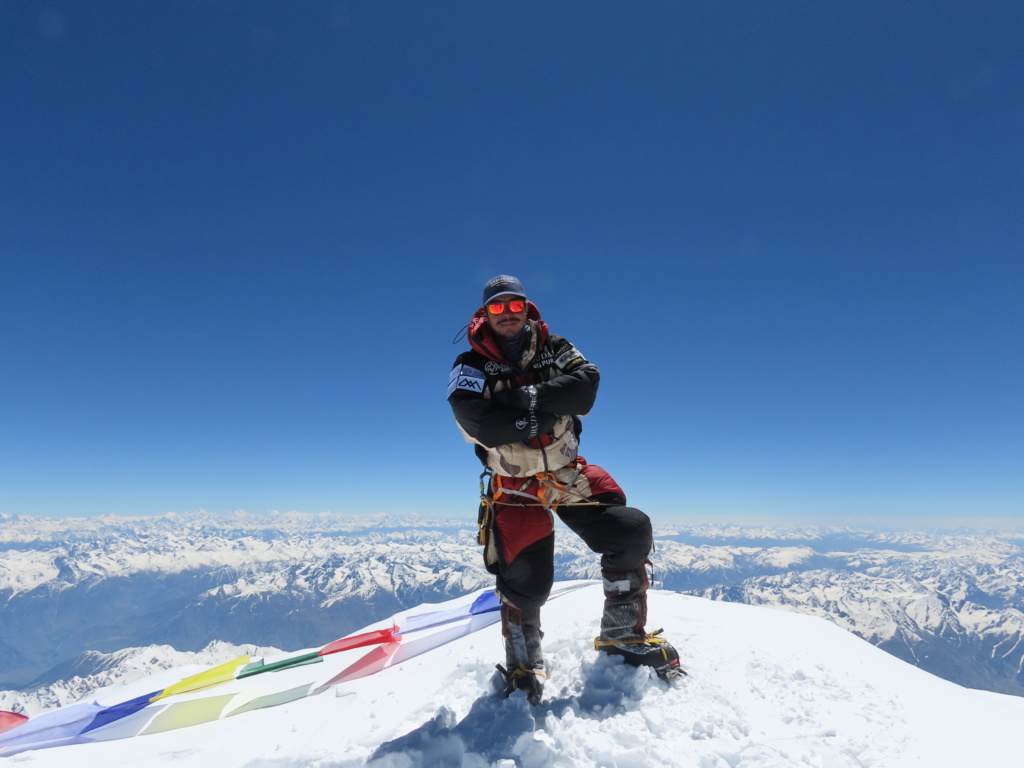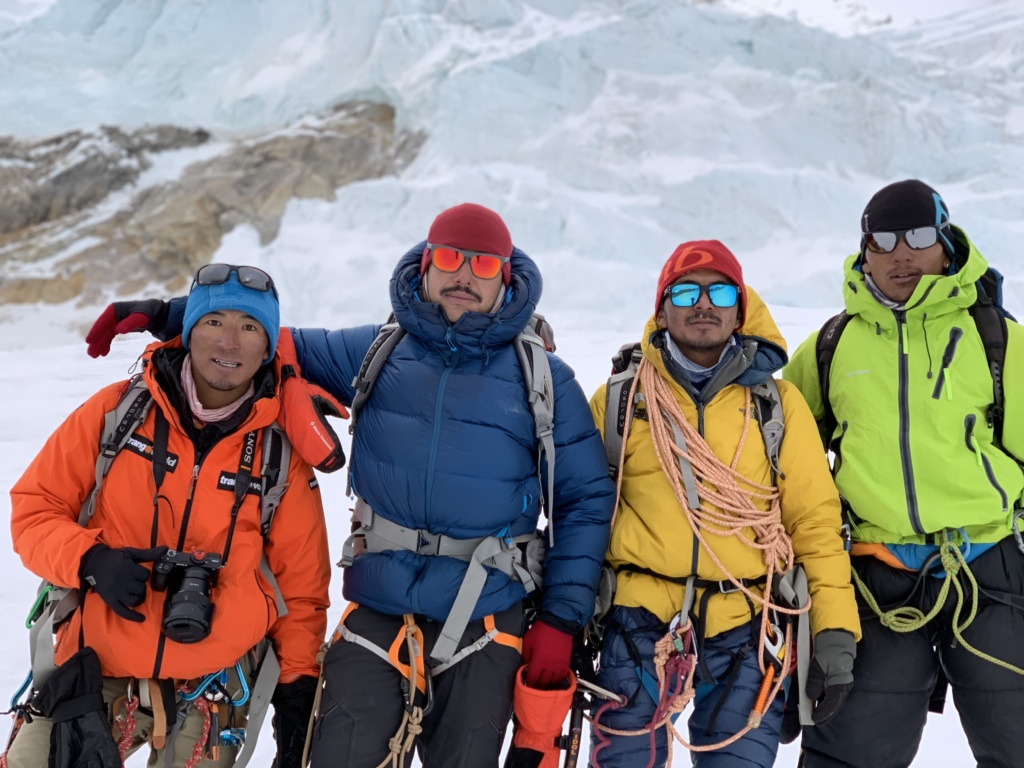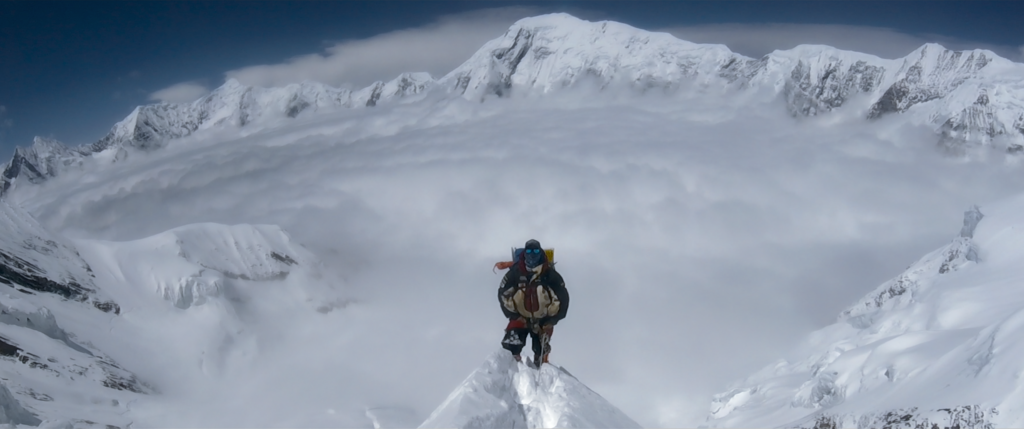After climbing some of the biggest mountains of the world, Nirmal ‘Nimsdai’ Purja is now on a mission of a different kind.

in six months and six days. All photos courtesy: Netflix
First published: https://www.firstpost.com/world/nirmal-nimsdai-purja-and-his-himalayan-mission-to-keep-everest-free-of-mountains-of-trash-10590621.html
Nirmal ‘Nimsdai’ Purja and his Himalayan mission to keep Everest free of mountains of trash
Determined to clean up some of the highest mountains in the world, Purja launched the Big Mountain Cleanup as part of the Nimsdai Foundation in 2021
In a few weeks, hundreds of climbers will line up on the slopes of Everest. While most will have their eyes on the summit, one team, led by Nirmal “Nimsdai” Purja, will be on a different mission.
In 2021, Purja launched the Big Mountain Cleanup as part of the Nimsdai Foundation. The idea was to take the trash off some of the highest mountains in the world. That season, they started out by cleaning up Manaslu – the eighth highest mountain in the world. And come spring, the team will look to do the same on Everest. They will begin by clearing out the South Col, infamously known as the highest junkyard in the world, and take their effort all the way to the summit.
“On average, each climber generates in excess of 18 pounds of waste that includes abandoned tents, oxygen canisters, food containers, discarded equipment and of course, human waste. These pollutants are being washed into rivers by rainfall and snowmelt, contaminating the water supply for the local population and posing a serious health risk. Besides that, I also want to put a stop to horrendous fatalities that occur when climbers accidentally clip onto old, rotten ropes,” Purja says.
“I believe we all have a responsibility to protect and restore these sacred mountains. Since I first started mountaineering, I have seen Himalayan glaciers become lakes and I believe we all have to do our bit to tackle climate change, so that future generations can experience the mountains as well,” he adds.

Until a decade ago, Purja lived a different life, far away from the high mountains. As a British Gurkha soldier, he was quite familiar with the world of endurance and survival, yet his tools usually consisted of arms and ammunition, rather than ice axes and ropes.
All that changed in 2012 when he landed the opportunity to trek to Everest Base Camp. As he arrived in Namche Bazaar, the first sight of Ama Dablam mesmerised him. At that moment, he knew he wanted to climb mountains in the time ahead.
Since then, Purja has managed to reach the top of Everest on five occasions. One of those successes came in 2019 when he started his longing for speed, climbing all fourteen, 8,000-metre mountains of the world in just six months and six days as part of Project Possible. It caused an upheaval of sorts in the world of mountaineering, forcing people to sit up and take notice. Then last year, he tested his endurance on K2 alongside an all-Nepali team that pulled off the first winter ascent of the mountain.
These days, Purja’s social media presence finds him travelling around the world, hobnobbing with big names in mountaineering and other celebrities outside of it. It’s a far cry from the ambitions that he had harboured as a soldier. Then one day, he chose to set aside all that he had built for himself. It was time for another adventure, this time in the world of rock and ice.
Ever since he arrived on the climbing scene, Purja has grabbed the spotlight with both hands, and through his many feats, ensured that it remains firmly on him. His larger than life image has drawn the attention of admirers and detractors alike. But at heart, he remains true to the path that he’s chosen and what his new environment demands.
“You have to be honest with yourself and your ability at all times, including the moment when you have to decide whether to go for the summit or not. You cannot have an ego – are you doing it to prove something, are you relying on luck? Because that’s not how it works in the mountains,” Purja says.
His first project, that of climbing all the fourteen 8,000-ers, posed all of those questions. The quickest to pull off all the ascents before Purja was Kim Chang-ho of South Korea, who had taken seven years, 10 months and six days. For Purja, it was all about redefining what was possible on the big climbs.
“I want to inspire everyone to know that nothing is impossible. With the 14/7 challenge (Project Possible), I wanted to show what human beings are capable of – to show the world that no matter where you start, where you come from, that you can dream big and achieve your goals. The mission was always bigger than me – it’s about inspiring and motivating others. I want people to watch and think – I too can achieve my goals,” Purja says.
His film, “14 Peaks: Nothing is Impossible” that released on Netflix last year gave a glimpse of Purja’s world over those frenzied months of 2019. Besides climbing, Purja and his team also had the additional responsibility of filming their steady progress up the mountain, simply because there were few others who could have kept pace with them.

“It’s not easy to climb and film at the same time. You need an incredibly strong team to get over 100 hours of footage that we did. Most people can’t take their gloves off to take a photo. That’s how cold it is. And I was flying a drone while climbing,” Purja says.
“The biggest compliment was to see everyone’s response to the film. The love and support have been next level and I feel really grateful,” he adds.
When 10 Nepalis marched in unison to the summit of K2 in 2021, it captured the imagination of the world at large. For long, this was a community that had silently worked in the shadows of their foreign clientele. Pulling off a climb that had defeated several renowned mountaineers in the past was a bold statement and a laurel that they truly deserved.
“I think people are starting to understand the importance of the Nepali climbing community and recognising their contributions. It’s great to see this,” he says.
Clearly, a lot can happen over a decade. Purja for one would certainly agree.
Nimsdai’s film 14 Peaks is out now to watch on Netflix